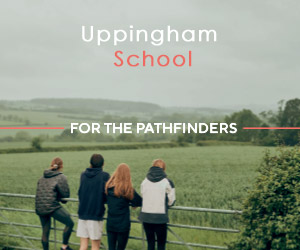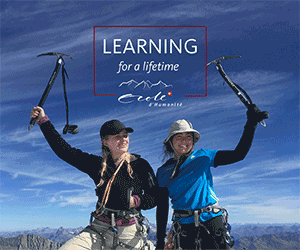
Education Evolution
12.07.21The notion of a traditional education is changing before our very eyes, but just how easy is it to discount the scepticism surrounding a new way of learning, asks Naomi Harrington?
Not since World War II have so many countries, communities and territories around the world seen schools and educational institutions retreat into lockdown at around the same time and for the same reason. Whilst we fully acknowledge that the consequences of the current pandemic will be far-reaching, just what might the longer-term implications be for the education sector?
For a while now, educators have been talking about the need to rethink how we engage and inspire future generations. The current pandemic could well be the disruptor that the sector needs to force this shake-up.
The majority of Generation Z students today are from a generation that has grown up in a truly globalised world, the oldest of whom are likely to be reflecting on their disrupted education as a result of COVID, with many facing cancelled exams, sporting events and even graduation. It’s a generation defined by technology, where the terms FOBA (Fear of Being Alone) and FOMO (Fear of Missing Out) express their expectation of instant communication and feedback – effected through apps like Instant Messenger, Snapchat and WhatsApp; something that’s amplified with the current distance learning norm.
This is also a generation that sees the power of working collaboratively to solve the world’s greatest challenges – climate change and mental health being top of the agenda, together with a present collective responsibility to self-isolate to protect older members of the community.
Generation Alpha, the children of millennials, are the most racially diverse generation across the world, and one for whom technology is simply an extension of their own consciousness and identity, with social media a typical way of life. These young pre-schoolers are also the generation with the most non-traditional family structures, often with “bulldozer parents” who move obstacles out of the way to create a clear path for their offspring.
Whilst at this point Generation Alpha may be largely oblivious to the wider impact of the global pandemic on their education, the repercussions will likely be felt for this population cohort for many decades to come.
According to a Dell Technologies report, 85% of the jobs in 2030 that Generation Z and Alpha will enter into have not as yet been invented. According to the latest World Economic Forum report, 65% of primary-school children today will also be working in job types that don’t currently exist. This being the case, what skills, could and should we be teaching?
An Interconnected World
COVID has illustrated just how globally interconnected we really are – gone is the xx of isolated issues and actions. Successful people in the coming decades need to be able to understand this interrelatedness and navigate across boundaries to leverage their differences and work in a globally collaborative way.
Redefining the Educator
The notion of teachers as the ‘font of all knowledge’ is no longer fit for purpose in today’s society. With students being able to access content and acquire all manner of skills from technical to linguistic with just a few clicks on their phones, tablets and laptops, requires a different teaching approach; one that facilitates young people’s development as contributing members of society.
Teaching Life Skills
In this ever-changing universe, future generations require resilience and adaptability – skills to help them navigate their way with confidence in the world. Looking ahead, some of the most important attributes that employers will be looking for will be creativity, communication and collaboration, complemented by empathy and emotional intelligence. The ability to work across demographic lines of differences to harness the power of the collective through effective teamwork will be of paramount importance.
Unlocking Technology
Life at present has resulted in educational institutions being strongarmed into utilising the suite of available technological tools to create content for remote learning. New modes of instruction that, until know, have been largely untapped, particularly in the kindergarten to Grade 12 arena, are coming to the fore.
Perhaps most importantly however, we hope that for Generation Z, Alpha and the generations to come, this ‘remote’ norm away from peers, teachers and classrooms will serve as a poignant reminder of the importance of the human need for face-to-face interaction.
COPYRIGHT © Abode2 2012-2024











